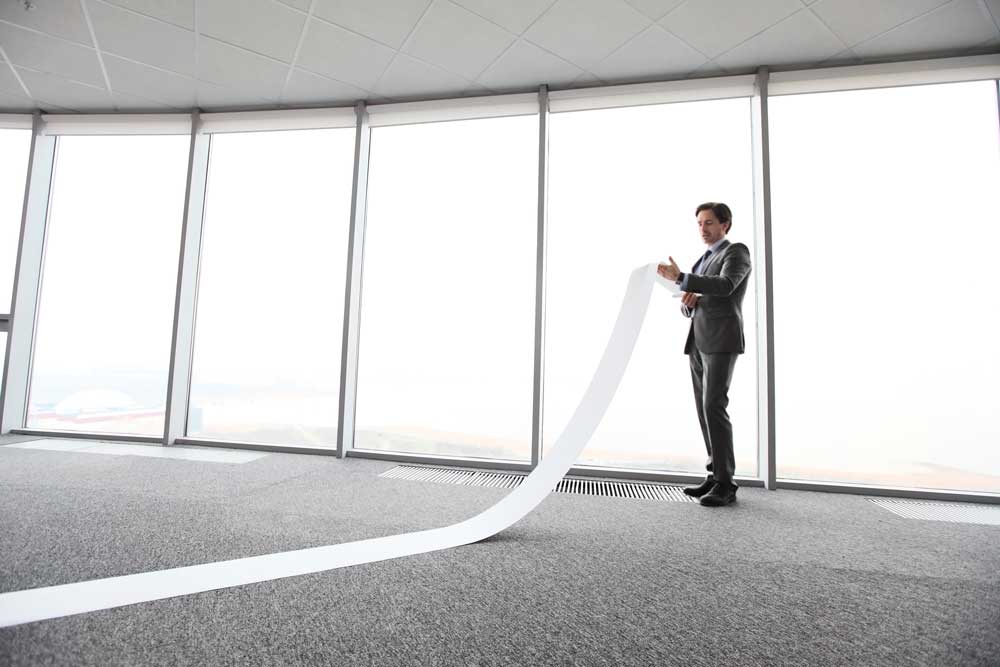If you didn’t already know, a single-page website is a website that has just a single page. Self-explanatory right? Now that’s out the way, let’s talk about why they’re a bad idea.
I get it, why send visitors that come to your website on a scavenger hunt? Why do that when you can provide them with it, all on one page? Sounds efficient in theory, but in actuality, there are several drawbacks to dedicating your entire website’s content to a single page. Here are a few reasons why you should break out of the shackles of your single-page website:
Keyword Ranking Tanking
One of the most significant limitations to single-page websites is keyword ranking. Single-page websites tend to be bad for SEO (Search Engine Optimisation), which affect your chances of ranking high on search engines. Bad SEO means low rank. A low rank means a decrease in conversions and user engagement, as you’re not getting the traffic onto your website. SEO relies heavily on keywords, and any webpage can only be optimised for a single keyword. A single-page website only has one singular page that is designed around a central topic or theme, so it is limited to only being able to rank for a single keyword.
For a business that has a bigger inventory of products and services, how do you then decide which one keyword you want to rank for? Multi-page websites, on the other hand, do not have this limitation. Each webpage can target a keyword, and each product or service can have its own page to rank for. This means an increase in the chances of search engines displaying your website.
Content Segmentation
Another limitation for a single-page website is trying to segment the content. Feeling claustrophobic is never a good thing, generally, and your website shouldn’t have your visitors bogged down trying to look for relevant content. So what happens when a visitor who comes onto your website wanting information about your product or service? Do they deserve to have to wade through mountains of clustered content to reach their goal?
No, the goal for your visitors is to get the information that they are after. Whereas, the goal of your website is to provide that for them, in the easiest way possible. Like laundry, this is done by separating the lights, from the darks, from the delicates. Your About Us, Meet The Team, Products and Services, Testimonials, Gallery and your Contact Me sections should all have their own web pages, with their own titles, their own keywords and their own metadata—again, for good SEO practices.
Time is of the Essence on a Single-Page Website
Don’t assume that visitors will stay on your website just because they’ve clicked on from a search engine search. Why would they stay when your website painfully loads with the speed of a rotisserie chicken? A single-page website cannot handle a big load of content without the loading speed being affected. Having videos and images, combined with texts, parallax effects and other data-sapping content on only a single page are factors that really affect a website’s load speed. The window of grabbing a visitor’s attention is minuscule, but how can you hope to keep visitors on your website if they don’t make it past the spinning buffering wheel of death?
Search engines like Google will not rank websites high that take time to load. A multi-page webpage, on the other hand, does not have this issue, as it has the ability to spread its information across many pages, thus increasing loading speeds.
Link Building
Single-page websites are limited in their ability to include many internal links, as the website consists of only one webpage. The links on their page only have the ability to jump to another section of the same page. The ability to link to another page is not possible with a single-page website.
Multi-Page websites are not bogged down with this disadvantage. Multi-page websites have the ability to include lots of internal links as they are not beholden to a limited number of pages that they have to cater to. Additionally, having external links increases the website’s SEO ranking.
Single-Page Website Takeaways
So can we all agree that single-page websites are actually bad? I’ll take your inability to reply as a yes. Multi-Page websites are more SEO friendly as they are more flexible, can contain more content, should you wish to have them, and can reach a wider audience. You can be more detailed about a product, even dedicate a whole page to a product. This is something that a single-page website will not be able to achieve. So even if you’re a business that only operates a small website, consider where you’ll be some years down the line and keep that in mind when choosing between single and multi-page design.
Don’t worry, we’ve helped various clients’ websites transition from single-page websites to multi-page websites. It’s not a painful process at all. Get in touch with our team if you would like to find out how we can help you and your business.
We also run a Digital Marketing Course that teaches you other ways to improve your website’s online presence. Book your place for the upcoming course here ».


